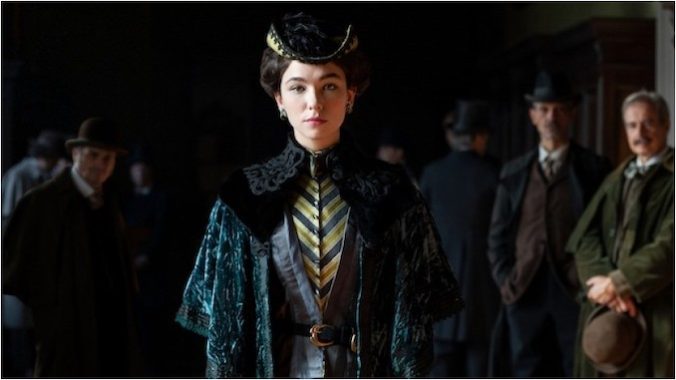ICYMI: The Law According to Lidia Poët Is a Delightfully Fun and Feminist Italian Treat
Photo Courtesy of Netflix
Editor’s Note: Welcome to ICYMI! While the actors continue to fight for the fair contracts they deserve, we’re highlighting some shows you may have missed in the deluge of content from throughout the year. Join the Paste writers as we celebrate our underrated faves, the blink-and-you-missed-it series, and the perfect binges to fill the void left by delays and corporate greed:

With the sheer amount of content Netflix releases, it’s a given that the average viewer is going to miss some real gems. And that goes double for the streamer’s catalog of international content, which tends to get even less promotion in America. For every Lupin or Squid Game that somehow manages to break into the larger entertainment mainstream, dozens of other outstanding international shows fly under most viewers’ radar. (See also: Babylon Berlin, Cable Girls, The Empress, 1899, and many more.) This is a shame for many reasons, not the least of which is that some of the streamer’s most interesting and offbeat offerings are the ones that come with subtitles attached.
This is a lot to say that if, for whatever reason, you haven’t heard of the Italian series The Law According to Lidia Poet before, please fix your life immediately. A lush period piece with a distinctly modern heart, the series is one part legal procedural, one part family drama, and one part feminist manifesto—with a little bit of will they/won’t they romance thrown on top. (Plus some truly fantastic costumes. Lidia’s hats!) Its narrative style will feel deeply familiar to anyone that’s ever watched an episode of Miss Scarlet & the Duke or Miss Fisher’s Murder Mysteries, which both feature similar themes and stories of uber-capable women forging new paths through a male-dominated world. And it features a star-making turn from actress Matilda De Angelis, whose fierce, feisty Lidia is tremendously likable and easy to root for.
The Law According to Lidia Poët is technically a Netflix Italian Original, and is roughly based on a true story. The real Lidia Poët is generally acknowledged as Italy’s first female lawyer and her determination to practice law did kick off a nationwide debate about the role of women in both the legal profession and public life. (Her struggle ultimately has a happy ending, and Lidia was officially made a legal advocate when she was 65.) The Netflix version adds a more procedural element to her story, dividing its narrative between specific cases of the week even as it follows its heroine’s quest to live life on her own terms, from her choice of career to her no-strings-attached fling with a handsome friend. And yet, despite its determinedly feminist point of view, the show handles issues of gender politics with a surprisingly light touch, content to show its viewers the ways that capable and exceptional women are all too often held back by a society that sees them as second class citizens rather than spout platitudes about oppression.
Set in Turin during the late 1800s, the series begins with a radiant Lidia (De Angelis), who is over the moon at having just received her law license and is eager to put it to use. Drawn into the case of a dead ballerina thanks to the fact that her rates are lower than her male counterparts, Lidia is determined to keep trying to prove her client’s innocence even after her license is revoked, and turns to her brother Enrico (Pier Luigi Pasino), himself also an attorney, for help (and a place to live). Although he never really wanted his sister to practice law in the first place, he brings her on as an assistant, agreeing to argue some of her cases in court for her, as long as she agrees not to attempt to appeal her disbarment. It is not a spoiler to say that promise doesn’t even make it through the series’ first episode, and Enrico himself ultimately ends up advising her as she prepares her statement for the court.